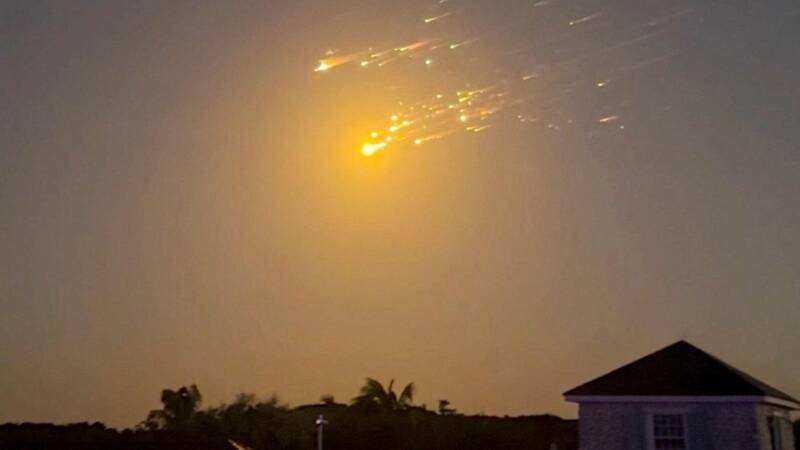Mexican President Claudia Sheinbaum has issued a stern warning to billionaire Elon Musk's SpaceX, threatening legal action over what she described as environmental contamination and falling debris from rocket launches conducted near the U.S.-Mexico border.

Speaking during her daily press briefing on Wednesday, Sheinbaum announced that the Mexican government is conducting a legal and environmental review following the most recent incident at SpaceX’s Starbase facility in Boca Chica, Texas. A Starship rocket exploded during a ground test last week, unleashing a towering fireball visible from miles away—including across the border in Tamaulipas, the northeastern Mexican state that lies just south of the launch site.
“There is indeed contamination,” Sheinbaum stated, emphasizing that her administration is now analyzing which international laws may have been violated to prepare “the necessary lawsuits.”
The fiery explosion was the latest in a series of technical setbacks for Musk’s Starship program, which is central to his ambitious plans for interplanetary travel, including a crewed mission to Mars. But for residents of northern Mexico, the spectacle represents not scientific wonder, but a growing source of concern.
President Sheinbaum said Mexican environmental authorities are conducting a comprehensive review of the cumulative impact of SpaceX launches on local ecosystems and air quality in Tamaulipas. This includes the possibility of debris fallout, sound pollution, and airborne pollutants drifting across the border.
FAA Greenlights More Launches Despite Environmental Concerns
The controversy follows a recent decision by the U.S. Federal Aviation Administration (FAA) in early May to dramatically increase the number of Starship launches allowed annually—from five to 25 launches per year. The FAA concluded that the increased launch cadence would not result in significant environmental harm, a position that overruled vocal objections from environmental and wildlife conservation groups.
Critics, including U.S. conservationists and now Mexican officials, argue that the rapid expansion of SpaceX's launch activities threatens sensitive coastal habitats, including nesting grounds for endangered sea turtles and migratory shorebirds that cross between the U.S. and Mexico.
This latest dispute marks yet another instance of friction between Mexico and major U.S. technology firms under President Sheinbaum’s administration. In May, her government filed a lawsuit against Google over the alleged renaming of the Gulf of Mexico to the “Gulf of America” on U.S. versions of Google Maps, a move reportedly linked to an executive order signed by former President Donald Trump.
“We will not allow foreign corporations to unilaterally decide what happens to our environment, our territory, or our names,” Sheinbaum declared, referencing both the Google case and the ongoing SpaceX situation.
Potential for Diplomatic and Legal Fallout
If Mexico proceeds with formal litigation, it could test international agreements related to transboundary pollution, aerospace liability, and environmental protections, particularly under frameworks such as the United Nations Outer Space Treaty and cross-border environmental protocols embedded in trade agreements like the USMCA.
While SpaceX has not publicly responded to Mexico’s threat of legal action, the company has faced growing scrutiny over its operations in South Texas, not just from environmental groups but also from local communities concerned about safety, noise, and land use.


Add comment
Comments